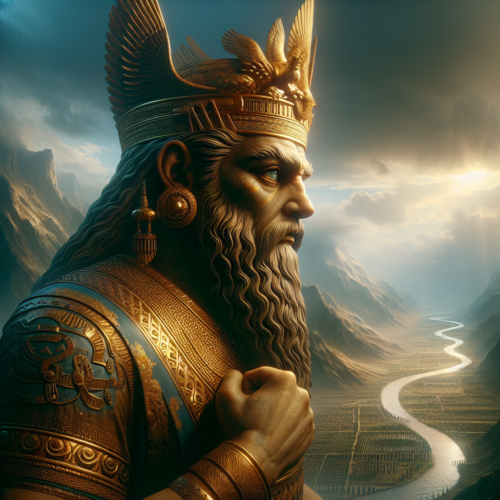Enbilulu is a Mesopotamian deity associated with rivers and canals, particularly known for his governance over the Tigris and Euphrates rivers. His role as a god of irrigation and water management is crucial in the context of Mesopotamian civilization, where agriculture depended heavily on the controlled distribution of water from these major rivers.
Enbilulu is revered as the regulator of the Tigris and Euphrates, ensuring that their waters flow properly to nourish the land. He is depicted as a master of the waters, holding the power to both unleash and restrain their destructive potential. This control over water makes him a vital deity for agriculture, as he manages the irrigation systems that are essential for crop growth.

Enbilulu is often depicted wielding a scepter, symbolizing his authority over the natural forces of water. This iconography emphasizes his role as a controller and protector, guiding the waters to benefit civilization rather than allowing them to run rampant and cause floods. His depiction as a powerful figure underscores his importance and the respect accorded to him by those who depended on the rivers for their livelihood.
In the Enuma Elish, the Babylonian creation epic, Enbilulu is recognized for his expertise in managing the waters. He is appointed as the guardian of the gods’ canals and watercourses, a role that highlights his essential function in maintaining the balance and welfare of the natural world and human society.
